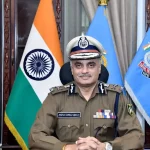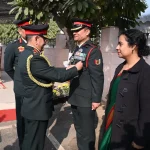A Master Warrant Officer (MWO) holds a pivotal role in the military framework, acting as a bridge between enlisted personnel and commissioned officers. This unique position blends technical expertise with leadership responsibilities, reflecting both the operational and administrative complexities inherent in modern military organization. With a focus on discipline, mentorship, and technical guidance, MWOs have become critical in shaping the success of military operations. Understanding the powers and duties of MWOs not only provides insight into their contributions but deepens appreciation for the structure and functionality of military forces.
Historical Context
The role of the Warrant Officer has evolved significantly over time, particularly in the last century. Originating in the British Army, the concept of a warrant officer was introduced in the 18th century as a means to recognize specialized skills within the ranks. This was a crucial development in fields requiring technical expertise—such as artillery, aircraft maintenance, and logistics.
In the context of the Canadian Armed Forces (CAF), the MWO was formalized as part of a shift toward recognizing the importance of technical knowledge and expertise while also providing a natural leadership trajectory for veteran enlisted personnel. Over the years, the MWO rank has grown to represent not just a position of authority but also one of immense responsibility, carrying significant burdens of training, mentorship, and operational oversight.
The Powers and Duties of a Master Warrant Officer
Limited Disciplinary Authority
One of the primary powers of an MWO is the ability to exercise limited disciplinary authority over enlisted personnel. This authority is crucial for maintaining discipline, cohesion, and order within units. However, it comes with limitations:
- Address Minor Infractions: MWOs can intervene in minor disciplinary issues, addressing behavior that does not align with military standards.
- Issuing Warnings: They have the authority to issue verbal or written warnings as a preliminary step before escalating matters to higher authorities.
- Recommendation of Disciplinary Actions: An MWO can recommend further disciplinary measures but cannot impose severe penalties or convene courts-martial, which remain under the jurisdiction of commissioned officers.
This capacity for enforcing discipline is vital, especially in high-stakes environments, ultimately contributing to the effectiveness and efficiency of military operations. Moreover, MWOs exemplify the principles of military conduct, influencing the behavior and attitudes of junior personnel.
Advisory Role
The advisory role is perhaps one of the most significant facets of an MWO’s duties. Acting as a trusted advisor, MWOs provide critical insights on:
- Technical Matters: Due to their specialized training and experience, MWOs offer technical advice that can inform strategic decisions. For example, in a flight engineering unit, an MWO’s insights could critically influence the choice of maintenance procedures or equipment upgrades.
- Operational Matters: MWOs help shape operational strategies by ensuring alignment with military objectives. Their understanding of the practical implications of orders allows for smoother execution on the ground.
- Personnel Management: They also advise on personnel-related decisions, including promotions, training needs, and assignments, ensuring that a unit has the right skills to accomplish its mission.
Operational Oversight and Quality Control
In their specialized areas—whether avionics, communication, or logistics—MWOs play a crucial role in operational oversight. Their deep understanding allows them to ensure that:
- Systems and Equipment Meet Standards: MWOs are responsible for monitoring the quality of the equipment and systems used within their area of expertise. This oversight includes ensuring that maintenance schedules are met, and any technical discrepancies are resolved promptly.
- Training and Readiness: They also contribute to the operational readiness of their unit. By facilitating the training of junior enlisted personnel and warrant officers, MWOs guarantee that all members are competent and prepared for the challenges ahead.
Mentorship and Leadership
Mentorship is a fundamental duty that MWOs undertake. They serve as role models to junior service members, instilling professional values and standards, and fostering an environment where:
- Learning and Development Flourish: MWOs are instrumental in guiding junior personnel through challenges and helping them develop their skills and potential. They also provide valuable feedback and coaching, enhancing the technical acumen of their teams.
- Communication Channels Remain Open: By bridging the gap between enlisted personnel and commissioned officers, MWOs facilitate effective communication, ensuring that information flows smoothly between ranks.
Technical Expert and Integrator
As technical experts, MWOs are the backbone of their units, managing, maintaining, and integrating complex systems. Their expertise enables them to:
- Operate Critical Systems: MWOs are often required to have hands-on technical experience with the systems they oversee, ensuring they can troubleshoot issues as they arise.
- Integrate New Technologies: In a rapidly evolving technological landscape, MWOs play a vital role in integrating cutting-edge technologies into current systems, thus enhancing operational capabilities.
Case Study: An Example of MWO in Action
To illustrate the duties of an MWO, consider Operation Inherent Resolve, where various military branches and units contributed to coalition efforts against ISIS. In this complex environment, MWOs from different specializations had to collaborate seamlessly.
For instance, an MWO specializing in communications technology worked alongside an MWO in logistics to ensure that the flow of intel was unhindered by logistical challenges. Their combined expertise not only addressed immediate operational needs but also led to the development of new standard operating procedures (SOPs) that enhanced both communication reliability and logistical fluidity across units.
Statistical Data and Research Insights
Research shows that the presence of senior technical experts like MWOs directly correlates with improved unit performance. A study published in the Journal of Military Affairs highlighted that units with MWOs noted a 30% increase in operational efficiency compared to those without this level of expertise.
Furthermore, the ability of MWOs to mentor junior personnel fosters a positive training environment. According to military personnel surveys, over 75% of junior enlisted members reported feeling better prepared for their roles when mentored by MWOs, showcasing the influence of experienced advisors in developing the next generation of military professionals.
Challenges and Solutions
Despite their importance, MWOs face several challenges:
1. Balancing Authority and Relationships
While MWOs hold a degree of authority, they must maintain positive relationships with both enlisted personnel and commissioned officers. This balance can be tricky, especially when disciplinary interventions are necessary.
Solution: Effective communication and transparency can help. By discussing their motivations and decisions openly, MWOs can maintain trust while fulfilling their duties.
2. Keeping Up with Technological Changes
As technology evolves, MWOs must continuously develop their skills to remain relevant. The rapid pace of advancements can be overwhelming.
Solution: Ongoing training and professional development opportunities should be reinforced at all levels of command. Access to updated training modules and hands-on workshops can ensure that MWOs remain at the forefront of technical knowledge.
3. Limited Recognition of Their Role
MWOs often work behind the scenes, which can lead to their contributions being overlooked within the broader military framework.
Solution: Raising awareness of the essential roles MWOs play can bolster recognition across military ranks. Initiatives such as mentorship programs for commissioned officers can highlight the invaluable support MWOs provide.
Future Trends and Predictions
As military operations become increasingly complex and technology-driven, the role of MWOs is poised to evolve further. Key trends that may shape the future of the MWO position include:
1. Increased Integration of Emerging Technologies
With the rise of artificial intelligence (AI) and robotics in operations, MWOs will need to become proficient in these technologies, ensuring their units can leverage new capabilities effectively.
2. Expanded Leadership Roles
As the need for specialized knowledge grows, MWOs may find themselves taking on broader leadership responsibilities, potentially leading multi-disciplinary teams and overseeing complex projects that require coordination across various specialties.
3. Enhanced Focus on Mental Health and Well-Being
Recognizing the psychological toll of military service, MWOs could play a significant role in promoting mental health initiatives, thereby fostering resilience within their units.
Conclusion
The Master Warrant Officer is an indispensable component of military operations, serving as a technical expert, advisor, mentor, and leader. With their limited disciplinary authority and vast scope of responsibilities, MWOs bridge the critical gap between enlisted personnel and commissioned officers, ensuring that military units operate efficiently, effectively, and cohesively.
As the military landscape continues to evolve, the importance of MWOs will only grow. Their ability to adapt to changing technologies, refine operational strategies, and guide upcoming generations of service members will be crucial as armed forces navigate the complexities of modern defence operations.
Through focused professional development, enhanced communication, and broad recognition of their contributions, the military can ensure that the role of the Master Warrant Officer reinforces its operational capabilities and strengthens the overall effectiveness of the service.
As we look to the future, it is imperative to appreciate and support the vital role MWOs play, ensuring that they not only lead but inspire the next generation of military leaders.













